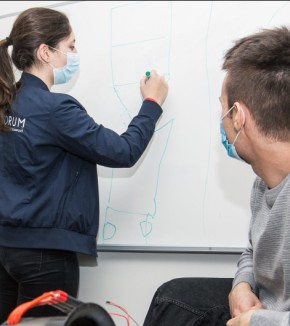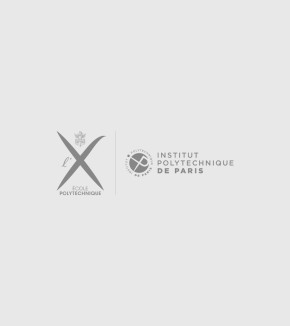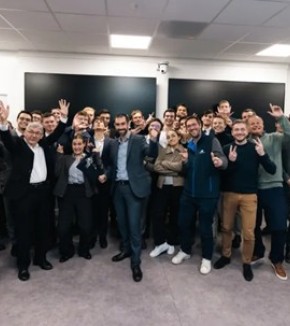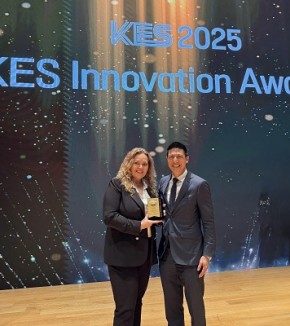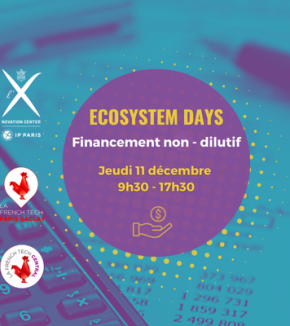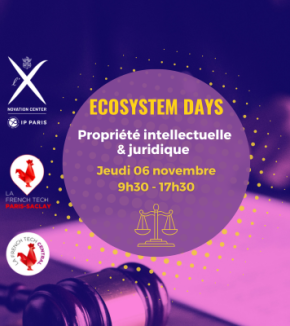InSpek : chemical detection system based on optical microchips.
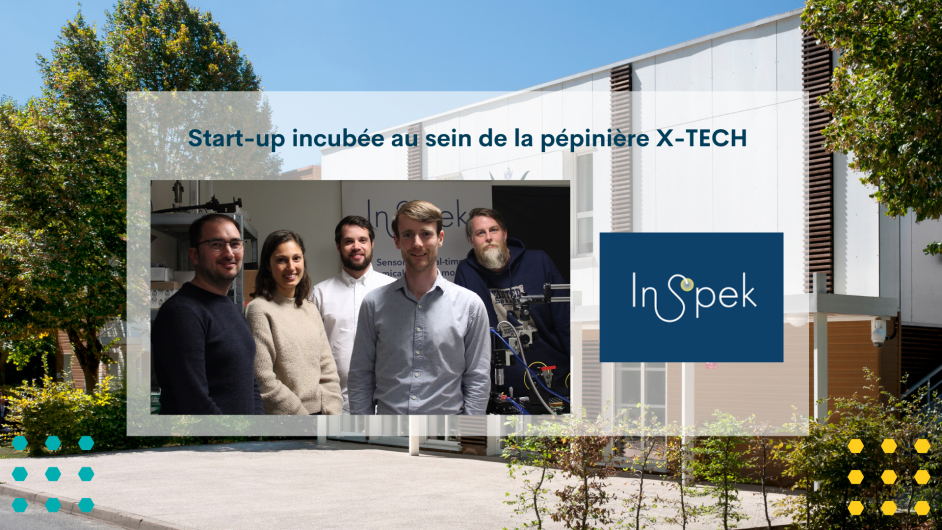 InSpek | Enlightening your processes.
InSpek | Enlightening your processes.
FROM STUDENT TO ENTREPRENEUR.
After graduating from École Polytechnique (X2011), Jérôme Michon chose condensed matter physics as his major and wanted to learn more. He then pursued a PhD at MIT (USA) on flexible and integrated optics (on chip).
The origin of the startup lies in this period. A scientific paper on Raman-on-chip related to chemical sensing caught the attention of Jérome and a colleague, who then started to develop ideas to take the concept from the lab to industry.
It was a great technology, but how could we make a solution that could be used by industry?
They started by talking to potential users (by attending different industry conferences in 2018 and 2019). Through this, they realized that there was potential to create a company. By talking as a researcher, without the intention of selling a product but to understand the needs of the users, the discovery was easier.
Get out of the building and go talk to end-users.
After much thought, they came up with an idea to industrialize Raman on a chip, for which MIT (their employer, as they were still students) filed a patent. The InSpek project was born.
InSpek's goal is to reduce the cost of errors and maintenance in industrial chemical processes by providing better sensors to better understand reactions and optimize their performance.
We reduce errors in chemical processes through better detection.
InSpek was founded in September 2021. The name has several connotations: spectroscopy, inspect, and in specs (when a product meets specifications). They are 4 co-founders and the startup now employs 4 people and an intern. They plan to be more than 10 people in the coming year.
In 2021, they joined the X-TECH offer at École Polytechnique. One of the co-founders works at the C2N laboratory (University of Paris-Saclay/CNRS) which is very close to the Drahi-X Novation Centre.
X-TECH offered all the services we needed, including the X-F4B prototyping space and the coworking space.
Jérome's team is supported in the development of their product and its industrialization by Cyril Hasson (responsible for the simulation, prototyping and industrial development of the X-F4B) and Gareth Paterson (responsible for the 3D modeling program of the X-F4B).
At the same time, InSpek is incubated at Agoranov, which provides mentoring and access to a large network. He also benefits from a mentorship at MIT following his career in the United States.
Finally, one of his examples in entrepreneurship is Bill Aulet (Executive Director of the MIT Entrepreneurship Program) with whom Jérôme took a course at MIT.
Their ambitions and their market.
InSpek's ambition is to develop a technology that is, above all, useful for industry. The only way to do that was to create a startup because a large company would not have been able to develop this Raman-on-a-chip technology - which is too different from what exists today!
The number one ambition is to bring a product to market and have people use this technology.
Jérôme is also happy to learn about business, legal issues.... An entrepreneur must be multidisciplinary, especially in the initial stages of the company's life. Beyond these ambitions, he wishes to accelerate the development of drugs and vaccines to have a positive impact on society in general.
Furthermore, Jérôme is part of a revolution in the integrated optics sector with InSpek, a market that will experience strong growth in the coming years. According to him, we will see the same revolution as with integrated electronics. There are many start-ups in this field, but none with technology similar to InSpek. This is an advantage for the start-up!
Their main successes.
Fundraising was essential to launch the start-up given the high costs of developing a hardware product. InSpek received €500,000 from the Quantonation investment fund, which was complemented by public grants. The last funding received was the X-Grant Silicon Valley 2022 innovation award, organized and funded by the École Polytechnique Foundation in France and its sister structure in California!
Moreover, they have managed to convince customers (B2B) of the relevance of their product. A first paying customer is working with them to test their prototype.
Big obstacles.
Everything takes twice as long as expected. The most recent example: they equipped a room in the X-F4B prototyping space at the Drahi-X Novation Centre to serve as a lab, but the delays in delivering the equipment delayed the operational start-up. Jerome also makes the same comment as Feng YANG (co-founder and president of Invisensing.io) about labs:
In research, everything is ready, but in entrepreneurship, you have to do everything from scratch by looking for the necessary resources.
X-Grant Silicon Valley Award.
The X-Grant Silicon Valley award gives him access to an important network in the United States, particularly in Boston, the world capital of the biotech & smart pharma sector. After France, the American market is the second market to approach. The X-Grant Silicon Valley award also gives the company visibility and credibility to approach large pharmaceutical companies.
This award is a very good label to communicate, find new customers and partners and raise funds.
Their next steps.
The objective for this year is to achieve an industrial proof of concept.
Another upcoming news is that InSpek is the winner of a call for projects from the Ile-de-France region which will finance a development project up to 240.000 €.
 Support l'X
Support l'X 